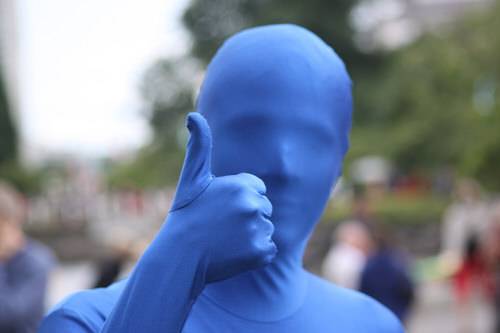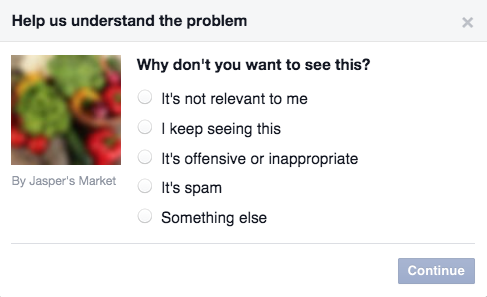
Maybe you told Facebook why you hid an ad in the past, but the social network didn’t really use that information to change the ads it showed you. That’s changed.
On Thursday, Facebook announced two new updates that are meant to help show people “better,” ads—as in, advertisements you might actually click on, thus providing better service to Facebook advertisers.
Facebook has provided the option to hide ads by clicking, “I don’t want to see this,” just like any other post, for years. But the company is now using information gathered by that feature to ask you why you’re hiding a particular ad in an effort to get a more comprehensive understanding as to why people hide ads. (Beyond the obvious “No one likes ads.”)
It’s unclear what Facebook was doing with the information you provided before this update, and the company declined to disclose what that data was used for. But now the social network is using it to determine which ads to display in your timeline.
After hiding an ad, Facebook will ask you why, and if you decide to provide feedback, you’ll see something that looks like this:

Feedback like, “It’s not relevant to me,” and “It’s spam,” can help Facebook better understand what you want to see. If the ads just aren’t interesting to you, Facebook will show you different ones. But if it’s offensive or spammy, the company might not display it on other users’ newsfeeds.
“When testing this update, we looked at when people told us that ads were offensive or inappropriate and stopped showing those ads,” product manager Max Eulenstein said in a blog post. “As a result, we saw a significant decrease in the number of ads people reported as offensive or inappropriate.”
Additionally the company will start paying more attention to users who only occasionally hide posts from their newsfeed. According to the company, if someone hides advertisements rarely, that will factor in what ads they show them, and if there’s even a small chance someone will hide a particular ad, it won’t appear in the newsfeed.
“When testing this update, we saw that people who rarely hide ads ended up hiding 30 percent fewer ads with this change,” the company said.
This won’t really affect the majority of advertisers, Facebook said. Only the ones that have terrible ads people tend to not want to see pop up in their feed. Of course, with extra data provided by users, advertisers will be able to target ads even more effectively.
Lead image by Doug Hay





















